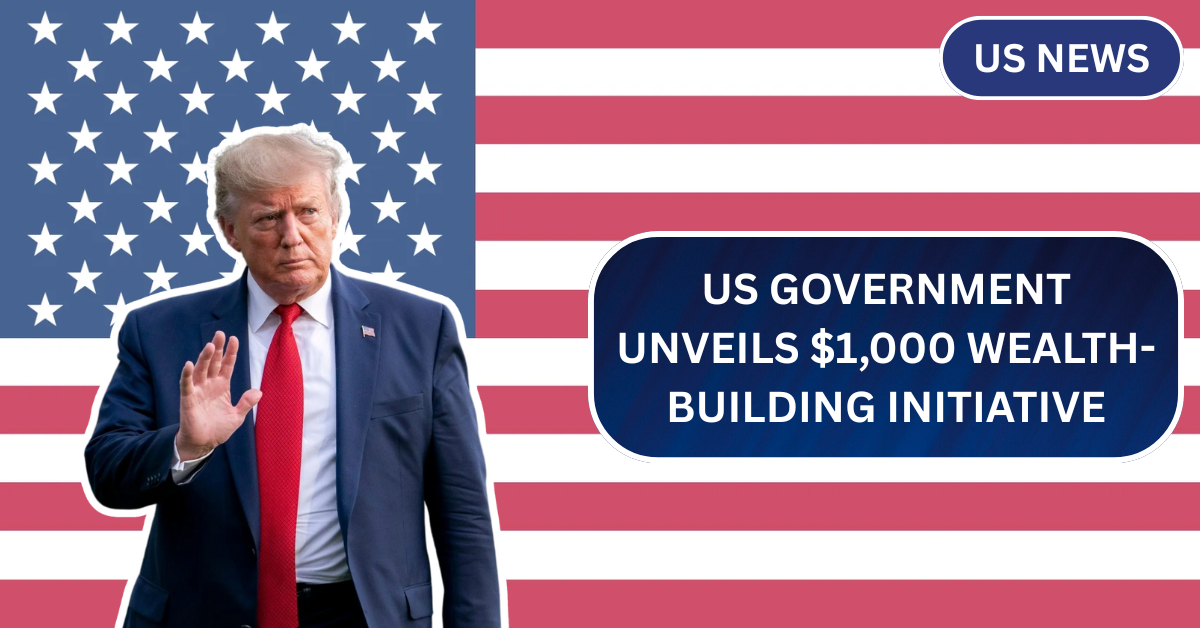A bold new proposal from the Trump campaign is making headlines—this time, it’s about giving every newborn in America a $1,000 jumpstart to build wealth. Dubbed the “American Baby Bonus” or “Trump Accounts,” this idea is part of a broader vision to help younger generations build a stronger financial future.
What Is the Trump Account Proposal?
According to updates from campaign sources and news outlets, former President Donald Trump and his team are floating a plan where the US government would deposit $1,000 into a federally managed savings account for every child born to American citizens.
These funds wouldn’t be handed out in cash. Instead, they would sit in a type of investment or savings account that could grow over time. The main idea is that by the time these children become adults, they would have access to a modest but meaningful fund—money that could be used for higher education, home purchases, starting a business, or even retirement.
Who Would Qualify?
So far, the proposal seems to target newborns born in the US to American citizens, although further details about eligibility, such as income limits or citizenship status, have not yet been finalized.
Some campaign insiders say this idea is about “rewarding and supporting American families” and could become part of a larger economic platform heading into the 2024 presidential race.
What’s the Bigger Goal?
Trump’s campaign says this wealth-building plan is a way to “give every American child a stake in their future.” It’s being described as a counter to rising wealth inequality and an incentive to support working-class families.
Supporters argue that starting a savings fund at birth could make a huge difference over time, especially if the accounts are tied to safe investments that grow over 18 or more years. They also highlight how similar child wealth-building programs have been successful in other countries, such as the UK’s Child Trust Fund or Singapore’s Baby Bonus Scheme.
What Happens to the Money?
Although exact details are still being discussed, the Trump Account would likely work like a government-managed investment fund—perhaps similar to a 529 college savings plan or custodial Roth IRA.
The money would remain locked in the account until the child reaches adulthood (likely 18 years old or older). The funds would accumulate interest or investment gains over the years, meaning a $1,000 deposit could grow to several thousand dollars by the time it’s needed.
There could also be restrictions on what the money can be used for—possibly only allowing withdrawals for education, home buying, or medical emergencies.
Could This Really Happen?
At this point, the Trump Account is just a campaign proposal. It would need to go through Congress and be passed as law. That means even if Trump wins a future election, the idea would still require political support and funding approval.
Critics are already raising questions—how much will it cost taxpayers? Will it really help lower-income families? Could the money be better used on direct support like free childcare or education?
But others believe this approach could help address long-term wealth inequality and encourage better financial habits from an early age.
How Would This Compare to Existing Programs?
The idea of a baby wealth fund isn’t totally new in the US. Some Democrats have proposed similar ideas in the past. Senator Cory Booker, for example, introduced a plan called “Baby Bonds,” which would give every newborn a savings account seeded with $1,000 and annual top-ups based on family income.
Trump’s proposal differs in that it does not currently include yearly contributions. It also frames the account more as a patriotic investment in the future of American citizens, rather than focusing solely on economic inequality.
Final Thoughts
While the Trump Account proposal is still in its early stages, it shows how economic security and family-focused policies are becoming key issues in upcoming elections.
If implemented, it could change how American families plan for their children’s future, especially among working-class households that may not have access to long-term investment tools.
For now, the plan is generating buzz, curiosity, and debate—but no official legislation has been introduced yet.
As updates come in, expect more discussions around cost, eligibility, long-term impact, and political support for this new kind of wealth-building initiative for American babies.




